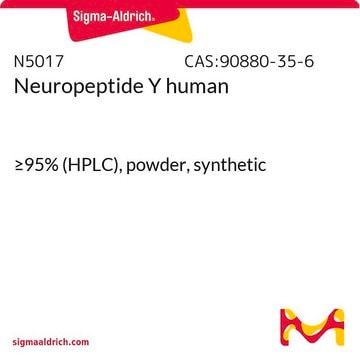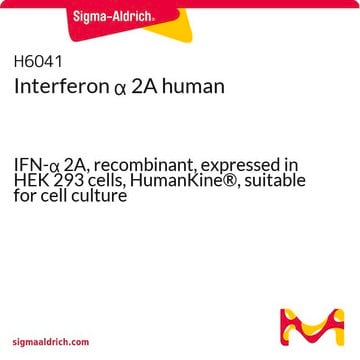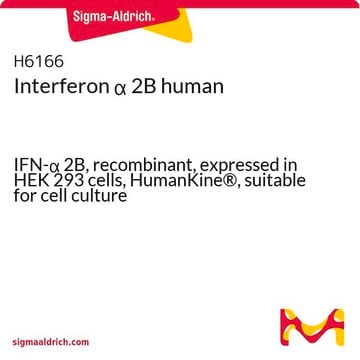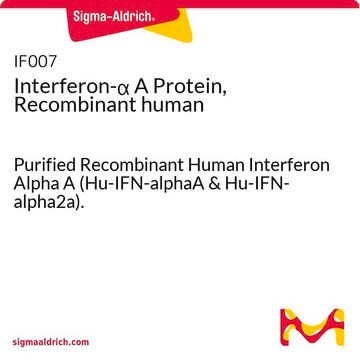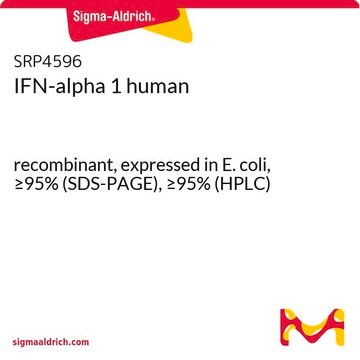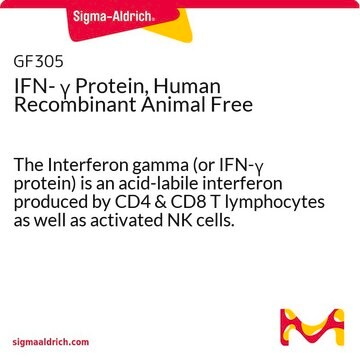SRP3061
IFN-omega human
recombinant, expressed in E. coli, ≥98% (SDS-PAGE), ≥98% (HPLC), suitable for cell culture
Sinônimo(s):
IFN alpha II-1, IFNW1, Interferon-alpha II-1, Interferon-omega
About This Item
Produtos recomendados
fonte biológica
human
recombinante
expressed in E. coli
Ensaio
≥98% (HPLC)
≥98% (SDS-PAGE)
forma
lyophilized
potência
≤0.01 ng/mL ED50
peso molecular
19.9 kDa
embalagem
pkg of 100 μg
técnica(s)
cell culture | mammalian: suitable
Impurezas
<0.1 EU/μg endotoxin, tested
cor
white to off-white
nº de adesão UniProt
Condições de expedição
wet ice
temperatura de armazenamento
−20°C
Informações sobre genes
human ... IFNW1(3467)
Descrição geral
Ações bioquímicas/fisiológicas
Sequência
forma física
Reconstituição
Código de classe de armazenamento
11 - Combustible Solids
Classe de risco de água (WGK)
WGK 3
Ponto de fulgor (°F)
Not applicable
Ponto de fulgor (°C)
Not applicable
Certificados de análise (COA)
Busque Certificados de análise (COA) digitando o Número do Lote do produto. Os números de lote e remessa podem ser encontrados no rótulo de um produto após a palavra “Lot” ou “Batch”.
Já possui este produto?
Encontre a documentação dos produtos que você adquiriu recentemente na biblioteca de documentos.
Nossa equipe de cientistas tem experiência em todas as áreas de pesquisa, incluindo Life Sciences, ciência de materiais, síntese química, cromatografia, química analítica e muitas outras.
Entre em contato com a assistência técnica